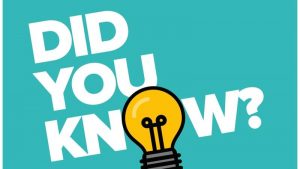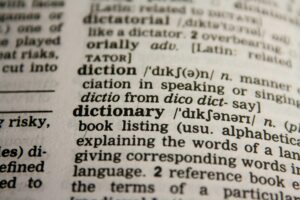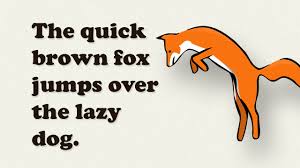The English language is a fascinating topic for a quiz. Spoken widely around the world, whether as a first or second language – there are many obscure facts, words, phrases and expressions that even surprise native speakers.
In this article, you’ll find 15 interesting trivia questions about the English language that you probably didn’t know yet. It has words for anything you can think of – and way more words even beyond that – for things you didn’t even think had a name.
For the argumentative type of quiz participant, we’ve done our homework and thoroughly fact checked the questions and included sources most answers, and occasionally some links to entertaining further reading.
1. Why are “computer problems” called bugs?
 On September 9, 1947, Dr. Grace Hopper of Harvard University was working on a malfunctioning computer and found a moth in the circuits which had caused the computer to break down.
On September 9, 1947, Dr. Grace Hopper of Harvard University was working on a malfunctioning computer and found a moth in the circuits which had caused the computer to break down.
Contrary to what many people believe, Dr. Hopper didn’t invent the term “bug”, though. In the 1800s, Thomas Edison already used the term “bug” for problems with his machines,
Since Grace’s discovery, the term “bug” has come to refer to a computer problem, especially software. Read more about this story on National Geographic.
2. What’s a speleologist?
Answer: A speleologist is someone who studies caves and their environment.
Stemming from the Greek word “spelaion”, which means “cave”, speleology means “the science of caves”. It includes the exploration, surveying and study of all aspects of caves and the cave environment.
3. What do the words “silver”, “month”, “orange” and “purple” have in common?
Answer: Each of these 4 words do not rhyme with a single other word in the English language.
That is to say, some of these words do rhyme with slang or old English verbs, or have imperfect, male or female rhymes. If you’re keen to know more, check out this comprehensive Wikipedia page that discusses different forms of rhyme as well as other words that don’t have a perfect rhyme in English.
4. Which word in the English language has the most meanings?
Answer: The word “set” has more definitions than any other word in the English language.
The Oxford English Dictionary (OED) lists 65 different definitions for the word “set” as a noun (out of which 17 are labeled obsolete). On top of that, the same word can also be used as a verb.
5. What does “antepenultimate” mean?
Image source: PDPics
Answer: The word “ultimate” is the last thing to happen, “penultimate” is next-to-last and “antepenultimate” is the last but two in a series; the third last.
For example, if you’re leading a meeting on a Friday afternoon where everyone is keen to wrap up, you can foreshadow that the end is near by introducing a topic as “the antepenultimate item on the agenda”.
A note on etymology: The Latin prefix “pen” means “almost”, just like in “peninsula” it refers to a body of land that is almost an island. The prefix “ante” means “before”. So “antepenultimate” refers to the item before the almost last item.
You can read all about common Latin Prefixes in the book “Greek and Latin Roots: Part 1” by Peter Smith, which includes a chapter with a brief overview of Latin prefixes.
6. What do you call plastic material at the end of a shoelace?
Answer: it’s called an “aglet”.
The English word “aglet” stems from the French word “aguillette”, which means “small needle”. Which is quite appropriate if you think of it: the plastic material forms a small needle to make it easier to thread the lace through the holes of your shoe. The wikipedia page tells more about the history of aglets.

Image source: kropekk_pl

Image source: kropekk_pl
7. What’s the name for the ridges on the side of a coin?
Answer: they are referred to as “milling” or “reeding”.
Originally, coins were given milling to prevent people from shaving off small amounts of metal from the coin’s sides. You could imagine that when a coin was made of gold, it would be tempting for anyone holding it to take off some of the metal before passing it on.
Now that coins are no longer made of precious metals, milling is no longer strictly needed for that purpose, but it has become part of the coin design. Did you know that the edges of Euro coins are all distinctive to help blind people easily identify which coin they’re holding?
8. What’s an octothorpe?
Answer: an octothorpe is commonly known as the pound, hash, hex, or hashtag (#).
In Singapore, the term “hex” is commonly used when you call an automated phone system, as in “Please enter your phone number, followed by the hex key”. The term was invented in the 1960 by Bell labs when they felt they needed a more scientific name for the symbol that already appeared on their keyboard.
For an entertaining discussion on the origins and many different meanings and uses of the octothorpe, check out this post by Sudeep Agarwal.

Image source: Tasos_Lekkas

Image source: Tasos_Lekkas
9. What’s the dent between your nose and your lips called?
Answer: a philtrum.
It stems from the word “Philtron” in Greek and “Philtrum” in Latin, which means “love potion”. The Philtrum is thought to make faces attractive.
10. What do the letters in the acronym “ZIP” (from ZIP code) stand for?
Answer: “Zoning Improvement Plan”
The ZIP code was introduced in the United States in the 1960s to make sorting of mail easier, and eventually automate it. Of course, introducing a new coding system for addresses is one thing, but people had to be encouraged to actually use the code when mailing out letters. The acronym “ZIP” was deliberately engineered to suggest that mail will travel faster (more Zippy) with it.
You’ll find an extensive discussion on ZIP codes on the ZIP Code wikipedia page.
11. What’s a pangram sentence?

The most well known pangram sentence, and one of the easiest ones to understand is “The quick brown fox jumps over the lazy dog”.
12. What’s the longest word published in a popular English dictionary?
Answer: “Pneumonoultramicroscopicsilicovolcanoconiosis”, with 45 letters.
It appears in the Oxford English Dictionary and is actually an invented word, said to refer to a type of lung disease caused by the inhalation of ash and sand dust, mostly associated with volcanic ash. It’s sometimes used as a synonym for the disease “silicosis”.
13. What are “crutch words”?
Answer: The words we use repeatedly during conversation even if they don’t add meaning to what you are saying
Actually, some crutch words are used, like, all the time, such as “Actually”, “like”, “basically” and “anyway”.
14. What’s the name for the small dot on the letter “i”
Answer: a “tittle”
The name “tittle” also applies to the dot on top of the j, and also appears in other scripts, such as Arabic, Greek and Hebrew. Some languages, such as Irish and Turkish, have a letter i without a tittle. Naturally, the word “Tittle” also has a wikipedia page with fascinating background information.
15. What’s the name for the symbol “&”?
Answer: It’s an “ampersand”
In Latin, “et” means “and”. In Latin script, the letters “e” and “t” were often combined in a single character, which is what we have come to know as the “&”. The Wikipedia page gives you a lot more information on the etymology of the word “ampersand”.
Every small improvement makes a difference immediately. You may never be perfect, and that’s ok. Even native speakers make mistakes. But as you become more confident in your ability to communicate in English, you’ll see the benefits.
We strongly believe that confidence is built through doing. That’s why our teachers will always encourage you to take the next step. Speak out, and try to speak out faster.
Practice and application are more important. To improve your conversational skills in English, you need to “do more” and “understand less”. That’s why we focus on practical topics that you can apply at the office the next day.
Not sure which course to join?
Test your level and we will advise you.
